What was the first ebook? Debate rages … When Peter James published his thriller Host on two floppy disks, in 1993, it was billed as the "world's first electronic novel", and attacked as a harbinger of the apocalypse which would destroy literature as we knew it. Now it has been accepted into the Science Museum's collection as one of the earliest examples of the form, as the spotlight of academia begins to shine on the history of digital publishing.
"I got absolutely pilloried," says James. "I was on Today accused of killing the novel, I was a front-page headline on papers in Italy – 99% of the press was negative … one journalist even took his computer on a wheelbarrow to the beach, along with a generator, to read Host in his deckchair."
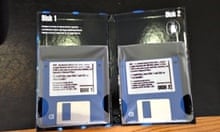
The digital version of the novel (it was also published physically) went on to sell 12,000 copies, according to James, and two years later, he was speaking on a panel on the future of the novel at the University of Southern California, together with Apple founder Steve Jobs. "I said ebooks would catch on when they became more convenient to read than the printed novel," said James. "It was astonishing the amount of outrage it caused."
And Host – about a scientist who downloads his brain into a computer and has his body frozen – has now become a historical artefact, accepted into the Science Museum's collection as a very early electronic novel.
It is not, however, the first ebook, a title which is "open to some debate", said Angus Phillips, director of the Oxford International Centre for Publishing Studies, particularly around "how you define an ebook, a term which has only become common recently in the light of dedicated devices such as the Kindle".
"We have moved away from thinking of it as simply a text available on a computer or on the internet. If you look at those, Project Gutenberg has been going since 1971 and by 1989 it had posted its 10th ebook," said Phillips. In the 1980s, meanwhile, the "CD-Rom revolution … saw reference books moving to electronic editions", with the Grolier Encyclopaedia published in this format in 1985, and the OED in 1989. "By 1994 you had Dorling Kindersley publishing a range of multimedia titles for a consumer market," Phillips said, also pointing to the collection of texts on diskette, If Monks had Macs, which appeared in 1988.
The 80s also saw the launch of computer adventure games based around stories, such as The Hobbit (1982), through which the user progressed by typing in instructions, said Phillips, while Stephen King's The Mist "was adapted into an all-text interactive fiction game and published in 1985," said Nick Montfort, associate professor of digital media at MIT. "So when people write about King's The Plant as that author's first ebook and first electronic publication, there is actually an earlier precedent."
And poet Robert Pinsky brought out Mindwheel in 1984, an interactive fiction game which is "explicitly labelled an 'electronic novel'"," said Montfort. The first existing print publication to be sold in large quantities in an electronic edition, meanwhile, was the Bible, he believes, "released in several versions by Franklin, as a stand-alone hardware device, in 1989".
But the MIT professor said that "when you start looking to see what's first in digital media, you often find a lot of early projects that were important in different ways and that have already been forgotten", adding: "Whenever you have a new media 'first', like the first video game, first ebook, etc, the category did not exist to begin with. So you have to ask what exactly you mean by video game, ebook, et cetera."
Dene Grigar of Washington State University Vancouver is researching early electronic literature for the project "Pathfinders: Documenting the Experience of Early Digital Literature".
She says that "the first electronic based work that constitutes a novel or book" is Judy Malloy's Uncle Roger, published in 1987 as a serial novel, collected by Malloy and released "as a database narrative that ran on computers like the Apple IIe". Malloy describes it as a "work of comedic narrative poetry".
Malloy "is the pioneer", said Grigar. The academic, president of the Electronic Literature Organization, has been collecting e-literature since 1991, when she discovered Michael Joyce's Afternoon: a story, published by Eastgate in 1989/90. Today, she is the owner of 28 vintage Macintoshes dating back to 1983, so she can read all of the works she owns.
Joyce's Afternoon, meanwhile, known as one of the first works of hypertext fiction, is the next project for Grigar's Pathfinders to document and preserve. Afternoon is "the story of Peter," says Eastgate, "a technical writer who (in one reading) begins his afternoon with a terrible suspicion that the wrecked car he saw hours earlier might have belonged to his former wife: 'I want to say I may have seen my son die this morning.'"
Grigar is now preparing to open an exhibit of electronic literature at the Illuminations gallery at the National University of Ireland Maynooth, and curated an exhibition on the topic at the Library of Congress last April. "Digital book environments are the future," she said, "so absolutely there is a growing interest in them".
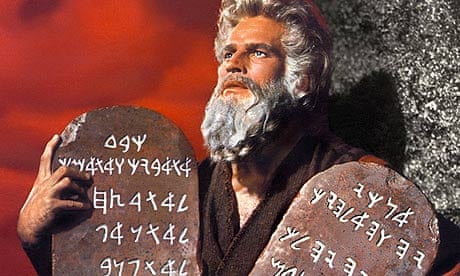
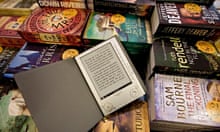

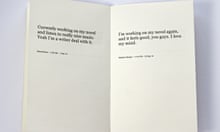
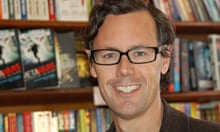

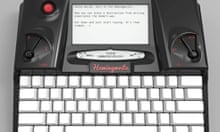

Comments (…)
Sign in or create your Guardian account to join the discussion